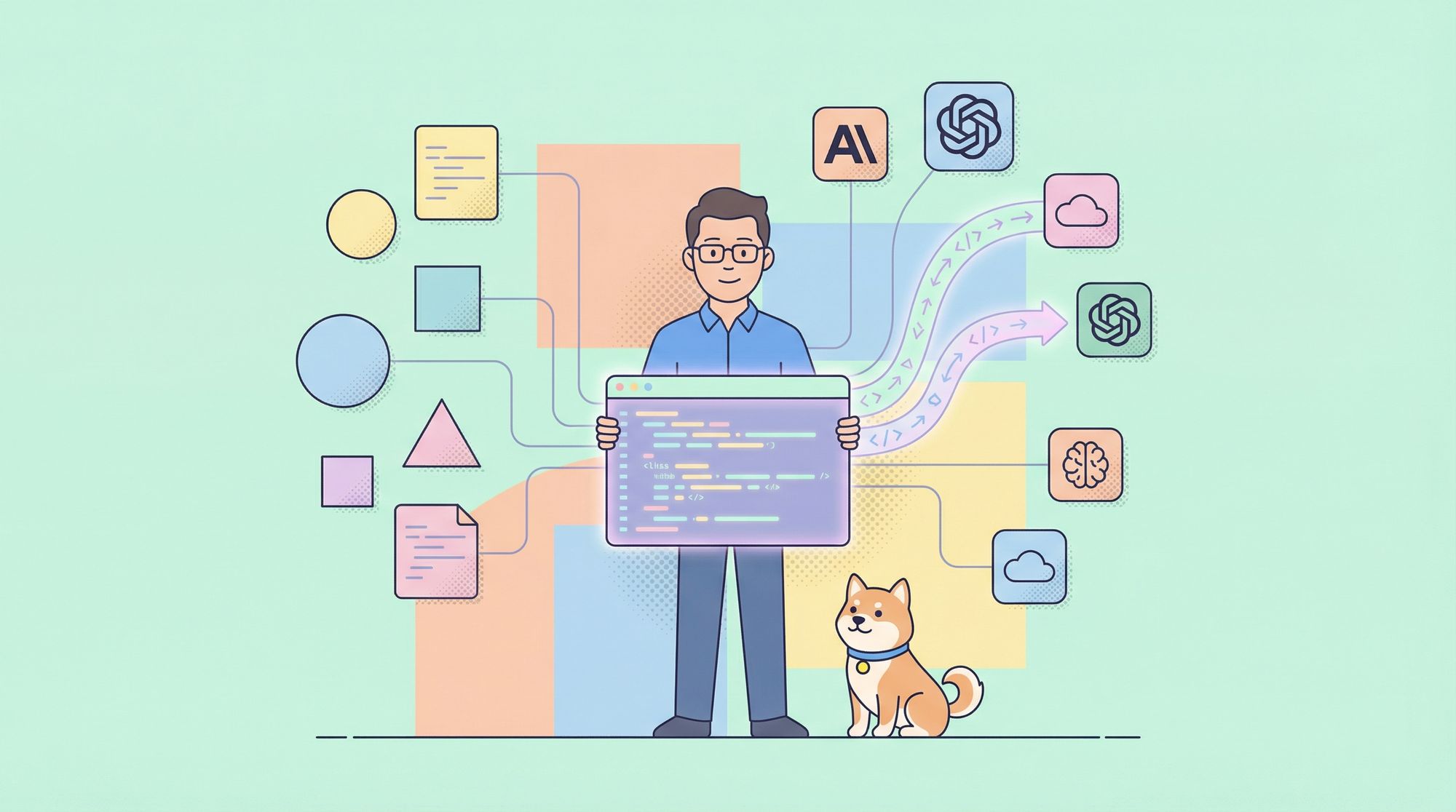For backend engineers, API developers, and technical leads, the terminal is more than a tool—it's a productivity powerhouse. Yet, most AI coding assistants are built for GUI environments, disrupting your command-line workflow and slowing you down. What if you could bring next-gen AI directly to your terminal, seamlessly integrating with your projects, tools, and preferred workflows?
Meet OpenCode—an open-source, terminal-native AI coding agent purpose-built for developers who value speed, flexibility, and deep code context. With a robust terminal UI, support for over 75 LLM providers, and zero-config Language Server Protocol (LSP) integration, OpenCode lets you collaborate with advanced AI while staying in your flow.
Why OpenCode? The Power of Terminal-Native AI
OpenCode stands out by offering:
- Native Terminal UI: Fast, themeable, and responsive, it feels at home in any shell.
- LLM Provider Flexibility: Use Anthropic (Claude Pro/Max), OpenAI, Google, or 75+ other providers—including local models like Ollama.
- Deep Code Understanding: Zero-config LSP support gives AI real-time awareness of your project’s structure, dependencies, and code context.
- Effortless Collaboration: Instantly generate shareable session links for code reviews or onboarding.
- Complete Workflow Control: Scriptable, customizable, and designed for automation.
If you’re building APIs or orchestrating CI/CD workflows, OpenCode can boost your productivity—just as API specialists often leverage Apidog for streamlined testing, documentation, and team collaboration.
Getting Started with OpenCode
OpenCode makes installation simple across macOS, Linux, and Windows (via WSL), letting you get started in minutes.
Installation Options
OpenCode is distributed as a Node.js package. Pick your favorite package manager:
- npm:
npm install -g opencode-ai - Bun:
bun install -g opencode-ai - pnpm:
pnpm install -g opencode-ai - Yarn:
yarn global add opencode-ai
For those not using Node.js, OpenCode offers a direct install script for macOS/Linux, and even supports Homebrew on macOS for quick setup.
Connecting to Your Preferred AI Provider

After installation, authenticate with your LLM provider:
opencode auth login
- Choose from providers like Anthropic, OpenAI, Google, and more.
- Enter your API key via an interactive TUI. Keys are stored locally for security.
- OpenCode can auto-detect keys from environment variables (e.g.,
OPENAI_API_KEY) or your.envfile.
Credential Management:
- List authenticated providers:
or shorthand:opencode auth listopencode auth ls - Logout:
opencode auth logout
Using OpenCode: Terminal UI and Deep Code Understanding
Once authenticated, start OpenCode in your project directory:
opencode
Or specify a path:
opencode /path/to/your/project
How LSP Integration Makes OpenCode Smarter
OpenCode automatically detects your project’s language and framework, spinning up the correct LSP server in the background—just like your favorite IDEs (e.g., VS Code). This enables:
- Code-aware AI: When you ask, “Refactor this function,” OpenCode understands dependencies, signatures, and call sites.
- No Copy-Pasting: The AI gathers relevant code context without manual prompt engineering.
- Accurate Responses: Reduces risk of hallucinated functions or API misuse.
This deep integration mirrors how tools like Apidog use project context to generate beautiful API documentation and enhance team productivity.
Productivity-Driven Terminal UI
OpenCode’s TUI offers:
- Main Chat View: Conversational interface with the AI agent.
- Command Input: Fast prompt entry, with full keyboard navigation.
- Status Bar: See current session info at a glance.
- Themeability: Match your terminal’s color scheme.
- Keybindings: Mouseless control—ideal for power users.
Advanced Workflows: Scripting, Automation & Collaboration
Scripting with Non-Interactive Mode
Use OpenCode in scripts or pipelines with:
opencode run "Explain the most common uses of the 'awk' command with examples"
- Use flags to continue previous sessions, target specific models, or generate shareable links—ideal for CI/CD, custom aliases, or automated code reviews.
Effortless Session Sharing
After any session, instantly create a unique, read-only URL to share your AI conversation:
- Collaborate on code reviews
- Share debugging sessions with teammates
- Onboard new engineers with walkthrough sessions
This is especially effective for distributed API teams, much like how Apidog enables collaborative, all-in-one API workflows at scale.
Model Flexibility and Personalization
- Switch Providers On-the-Fly: Choose between Anthropic, OpenAI, Google, or local models—no lock-in.
- Customize Experience: Tweak themes, keybindings, and defaults in your config file.
- Persistent Settings: Make OpenCode truly yours, adapting to your workflow.

Example: "Tokyo Night" theme in OpenCode
Conclusion: Bring AI to Your Terminal Workflow
OpenCode transforms AI coding assistance from a chat widget into a deeply integrated development agent. With open-source flexibility, broad model support, and true terminal nativity, it empowers backend and API engineers to code faster, automate more, and collaborate effortlessly—without ever leaving the command line.
As API specialists know, the right tools amplify productivity. If you’re seeking an all-in-one API platform that generates beautiful documentation, streamlines collaboration, and offers cost-effective alternatives to legacy tools, Apidog is powering modern developer teams.





